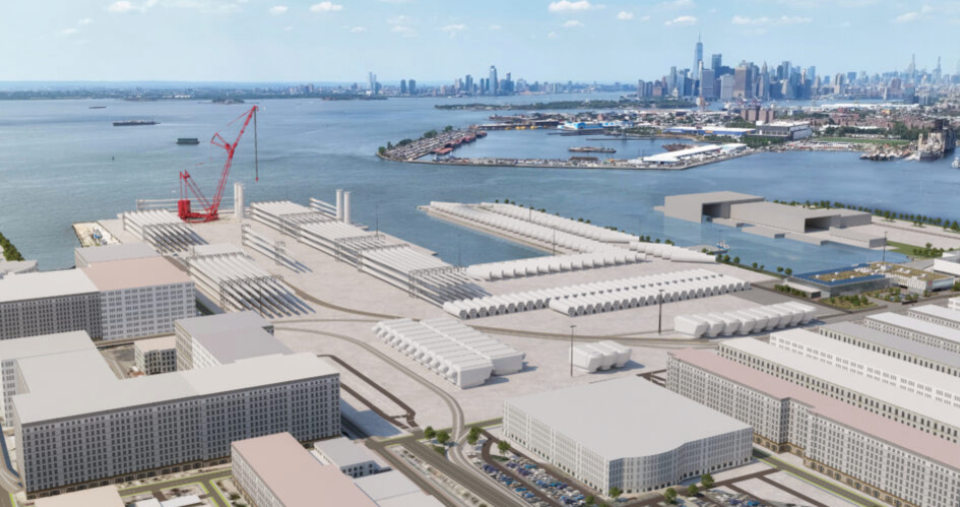Governor Kathy Hochul announced that the state authorized the Norwegian energy company Equinor to start construction of Empire Wind 1, an offshore wind project off the coast of Long Island.
The electricity that will be created will be piped into Brooklyn and used throughout the city.
Hochul said the New York State Public Service Commission granted Empire Offshore Wind, LLC its final approval to begin construction, according to a news release.
The permits, called the Certificate of Public Convenience and Necessity (CPCN), that were issued last week authorizes the construction and operation of transmission facilities for the delivery of electricity into New York from the 810-megawatt (MW) offshore wind farm, which is scheduled to start producing energy in 2026.
The approved transmission facilities that will be located within New York’s jurisdiction include: two 230 kilovolt (kV) alternating current submarine transmission cables extending from the boundary of New York State waters (three nautical miles from shore) to the cable landfall in Brooklyn; a 0.2 mile-long onshore cable route including two 230 kV alternating current transmission cables buried underground connecting to an onshore substation; an onshore substation located at the South Brooklyn Marine Terminal that will increase the voltage to 345 kV; and two 345 kV alternating current onshore transmission cables buried underground from the onshore substation to a Point of Interconnection with Consolidated Edison Company of New York, Inc.’s existing Gowanus 345 kV substation in Brooklyn.
“I have made a commitment to have New York become a place for renewable energy to grow and flourish, and today are delivering on that promise,” Hochul said. “Offshore wind is a critically important part of our fight against climate change, and today’s decision will help move forward a zero-emissions electric grid that will provide long-term benefits to all New Yorkers.”
The offshore wind farm industry has struggled to take off, as inflation, construction price hikes and permitting delays have bogged down the creation of several planned projects. Equinor cancelled building a second offshore wind farm in January.




